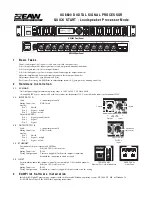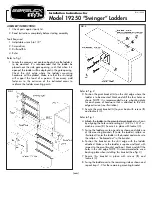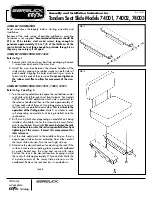
Page 5
DLS350 User Guide
Basic Testing
The DLS350 is calibrated to have an output power level of -22dBm. Variations in power level
between -22dBm and -25dBm may be normal depending on the quality and age of the test jumper, the DLS350 output
port, and other factors.
Always ensure the DLS350 is transmitting an acceptable power level before performing an insertion loss test. Simply insert
the test jumper (plugged into the DLS350) into a companion power meter set to the dBm mode. The power meter will
indicate the measured output power of the LED. If this reading is not near -22dbm first inspect the DLS350 ferrule with an
Inspection Scope. If it passes according to IEC try using a different test jumper. If none of these resolve your issue please
contact Tech support -see the final page of this document for contact information.
Transmitting Light
The DLS350 transmits either the 850nm or 1300nm wavelength on Multimode fiber. Be sure to use a test jumper to mate
the DLS350 to the fiber under test. this allows you to isolate the DLS350 from any dirt on the fiber being tested and
allows you to set reference when doing relative power tests.
Test Jumper
Mate Connectors
Signal Propagates Down
the Fiber
Caution: Invisible LED Radiation
Please note that 850nm and 1300nm wavelengths are not visible to the human eye. Do not look directly into the output
port of the DLS350 or directly into any fiber connector that may be live.
Since the LED is invisible to the eye, the eye’s natural blink reflex is suppressed. This can cause damage to the retina.
FDA 21 CFR 1040.10 and 1040.11
IEC 60825-1: 2007-03
Class 1 LED Product
Output Power
Test Jumper Plugged
Into Power Meter
Power Meter Displays
Output Power of LED


























